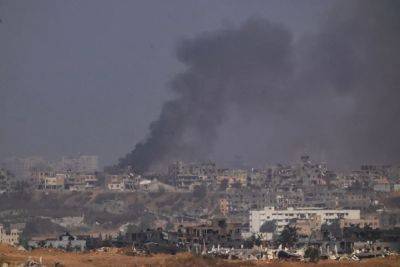After downsizing health care for years, Pentagon says medical readiness was a casualty
The Air Force put Todd Rasmussen through medical school, and he planned to serve a while and then go into private practice at the renowned Mayo Clinic in Minnesota. He started his military career as a vascular surgeon in Northern Virginia, a few weeks before Sept. 11, 2001.
"You could sort of see smoke from the Pentagon. I thought, boy, my military career as a surgeon ... it's gonna be vastly different than what I expected," he recalls.
Rasmussen switched to trauma surgery as casualty numbers soared to the highest rates since Vietnam. At first, the way patients arrived within days from the war zone thousands of miles away amazed him. That wore off though, when he realized patients weren't getting care soon enough. By the time they reached the U.S., their wounds were contaminated and sometimes too late to treat without amputation.
"It's hard to admit we let we let somebody down and that somebody was a U.S. service member," he says. "And so, you know, it's hard to admit we could have done better. But I think maybe the only thing worse is not admitting it."
Mounting casualties made it impossible to ignore, and the Pentagon did change. As with previous wars, saving lives on the battlefield inspired medical innovations in Iraq and Afghanistan. By moving medical care closer to the front, and treating combat wounds within the so-called "golden hour," or even the first 30 minutes after injury, casualty rates dropped.
Now Rasmussen and other veteran medical officers warn that
U.S. military health care again needs a course correction. After a decade of downsizing, Defense Department officials also admit they need to rebuild the medical force and the general health of active duty troops. But restoring medical readiness to where it







